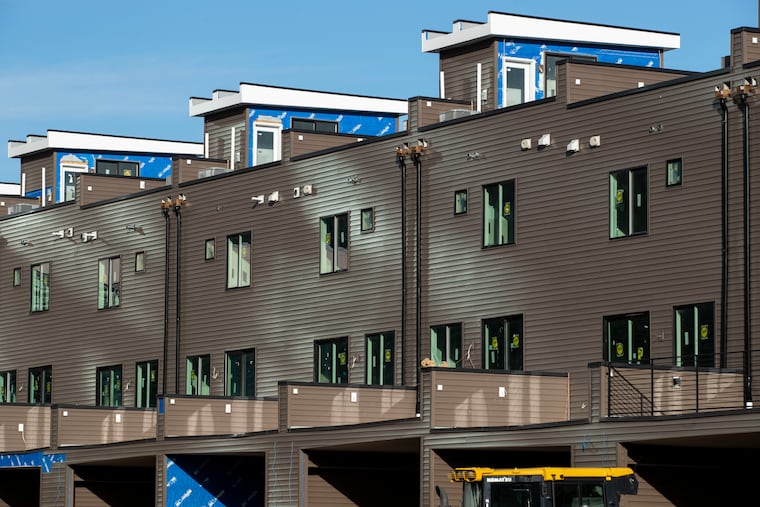White male homeowners are overrepresented on land-use boards, survey finds
Urban Institute researchers said the findings raise questions about whether zoning and other land-use boards are reflecting the desires of their communities when making planning decisions.

Most of the people making decisions about how land is used in cities and towns across the country are white men who own homes, according to a survey of more than 480 municipalities’ land-use boards last year by the Urban Institute.
“Since that has been historically the group that has been making prior decisions, it seems we would get a lot of land-use policies that are in line with historical decision-making,” said Lydia Lo, coauthor of the report released last week and research associate with the Metropolitan Housing and Communities Policy Center at the Urban Institute. “And what we’ve seen historically has been an overproduction of single-family homes.”
Building more densely is part of the solution to a national shortage of adequate housing and rising unaffordability.
» READ MORE: Kenney administration is working to shorten wait times for project approval by zoning board
Land-use boards in the 10 Pennsylvania municipalities in the Philadelphia area that responded to the survey have less Black and Asian representation compared to their populations than boards nationally. Chester, Delaware County; Lower Merion, Montgomery County; and East Whiteland, Chester County are among the municipalities that participated in the survey; Philadelphia did not.
Having inequitable demographic representation doesn’t automatically mean a board will act counter to the interests of communities or vice versa. But the authors of the Urban Institute report said their findings raise questions about whether land-use boards are reflecting the desires of their communities when making planning decisions.
» READ MORE: Philly City Council approved a plan to reshape an important board that decides the fate of proposed developments
Researchers were looking at how land use affects housing affordability when they noticed a lack of research about who sits on land-use boards.
“It’s important we know who’s making decisions about the shape of our cities,” Lo said.
Researchers expected to find overrepresentation of white homeowners on boards, but a few findings surprised them. Here are some takeaways from the report.
Underrepresentation of Black, Asian, and Hispanic residents on land-use boards
In the municipalities surveyed across the country, the share of Black board members was roughly in line with the share of the Black population, “which was really encouraging,” Lo said. Black residents were underrepresented by 1 percentage point.
Asian residents were underrepresented by 4 percentage points, while Hispanic residents were underrepresented by 8 percentage points.
White residents were overrepresented on boards by 15 percentage points. More than two in five boards were at least 95% white.
Across the 10 municipalities surveyed in the Philadelphia area, land-use boards were 88% white, while resident populations are 70% white. The municipalities are 4% Hispanic, but none of them reported having any Hispanic board members, according to the report.
The boards were 9% Black, while their resident populations were 15% Black. Asian members represented 2% of boards, while the municipal populations were 8% Asian.
Underrepresentation of women on land-use boards
Across all the municipalities surveyed, women held 28% of land-use board positions, even though roughly half of residents are female.
Compared to other land-use decision-making boards, zoning commissions are the most male-dominated, the survey found.
In the 10 Philly-area municipalities, land-use boards were 74% male, while resident populations are 47% male.
Underrepresentation of renters on land-use boards
Homeowners dominate land-use boards, according to the Urban Institute. Renters were underrepresented in 99% of the surveyed municipalities.
In the 10 Philly-area municipalities, land-use boards were 95% homeowners, while resident populations are 74% homeowners.
Making land-use boards more representative of their communities
Urban Institute researchers found that many municipalities require land-use board members to own property or hold certain degrees, and they don’t provide much support for what can be burdensome work.
Researchers considered offerings such as compensation for board work, remote meetings, public transit access, parking or mileage coverage, and training. None of these reliably or significantly meant equitable Hispanic representation on boards, Lo said.
But on average, boards that compensated members, offered flexible meeting times, and had access to transit had fewer white members and more women and Black and Asian members, according to the report. Researchers mused one reason for that may be that municipalities interested in equity offer these types of supports to try to make boards more accessible.
The report authors recommend states set standards such as compensation and flexible meeting options to open access to underrepresented groups.